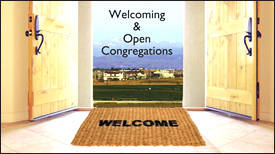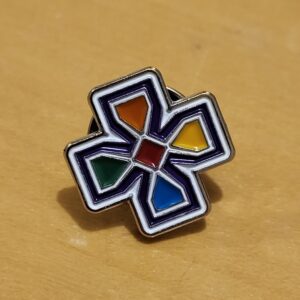Dear Friends
As I write the Lambeth Conference of Anglican bishops from all over the world is just concluding in a very sultry Canterbury. It has been a demanding yet fascinating three weeks, enriched by so many personal encounters and conversations. It has also been a genuine opportunity for bishops to receive in-service theological training for our distinctive ministry in terms of leading and equipping the people of God for mission today.
One would expect one’s readers to be remarkably naïve or uninformed if one did not admit to them that the chief elephant in the room – as they say – at the conference was the issue of same sex relationships. Unfortunately this has become, for many, a touchstone of orthodoxy in terms of adherence to ‘traditional’ biblical teaching. Many of us, myself included, honourably believe that Scripture can be read in a way that with integrity and the benefit of scholarly insight allows us to hold a position sympathetic to those of the gay community who consider that their committed relationships partake of the path of holiness. We are of course also influenced by our cultural context which places such stress on human rights and justice and for the need for all people to find fulfillment and love in whatever relationships they, in good conscience, embrace. For many – and perhaps the majority of Bishops in the Anglican Communion – an honourable and prayerful reading of Scripture offers quite a different conclusion. It has evidently become difficult for certain people to remain in unimpaired Communion while considering that a life of Christian holiness and morality, although always inspired by Scripture, may actually be lived out in its detail in very different ways in different cultures. I think it is fair to say that all the African bishops in my own small working group at Lambeth (and this is no criticism of them) considered it their duty to hold a clear view that same sex intimacy is repugnant to Scripture. The path ahead on this matter is rocky and uncertain, and while I feel in my heart that one day in the future we will look back and regard the Biblical debate over gay relationships in much the same way as we now regard efforts to use the Bible to support slavery two centuries ago, that view could prove to be an act of spiritual arrogance on my part. Meanwhile likely developments in civil law in Ireland in the very near future concerning non-marital but registered partnerships will concentrate our minds a good deal as we reflect on all of this.
As I travelled the Lambeth journey, I felt I should use the opportunity to meet and hear the stories of people whose sexual orientation and experience, within and beyond ordained ministry, is very different to my own. I went to a fringe meeting to hear Bishop Gene Robinson of New Hampshire, whose non-invitation to the Conference on account of his manner of life has been highly controversial and who nevertheless was highly visible on the fringes of the meeting. I had a moving opportunity to meet a group of gay and lesbian Christians from Nigeria whose very existence is denied by their own Anglican Church and whose relationships run the risk of encountering extremely severe penalties in civil law. I had an extraordinary opportunity to meet a group of transgender people of faith, some of them priests, from several countries, and to hear of their experiences.
As I return home with all these memories in my mind, it strikes me that one of the most important things we can actually do, in the local household of faith, is to make honest and wholesome connections between sexuality and spirituality, to provide a safe space where people with varying experiences of sexuality can realise the nature of divine love for them and tell their stories and above all to give a clear message that no-one should be marginalised when they seek to experience our hospitality. All of us humans are aware of the power, beauty and wonder of sex and also of how it can be so easily manipulated and trivialised. Among our deepest longings are those for food, community, sex and a sense of the divine. It is thus inevitable that when we gather as a Eucharistic community we are being untrue to ourselves if we fail to make those necessary connections between spirituality and sexuality. How else can we truly claim to be offering the whole of life to the Creator?
For gay and lesbian people – of whom there are, of course, many in our parishes – making these connections within the life of the church is still no easy matter. It remains difficult to come out and to trust others when one does so, it is tempting if not always correct to assume that partners of the same sex will find our churches less than welcoming, our parish life continues to be dominated perhaps by one normative model of family – a reality which has often through the years made our churches somewhat cold places for those who happen to be single. We have also been far too keen to concentrate on the sexual and private aspects of things, and too little inclined to reflect on how, within Christianity, there was a long and important tradition of celebrating and consecrating friendship. Whatever your theological views on the kind of issues we have been discussing at Lambeth, always be ready to offer a genuine welcome and a listening ear. Try to get yourself inside the skin and even, if it be possible, the feelings of someone of a different sexual orientation. Think of how difficult it can be for gay and lesbian people to approach Anglican churches in search of a welcome when they read so much in the newspapers about the contortions of the Communion over their situation, while at the so-called heart of that communion their voices are still inadequately heard.
I have written many words now and if I have displayed some measure of passion in saying all this, it is purely deliberate. Through encounters with my own friends who are gay and through some difficult situations in my ministry as well, I have, in my own soul and conscience, travelled a long way on this issue. Not all will agree with the message I am giving now. On the other hand I am sure I am right to assume that quite a few gay and lesbian people of faith (or indeed their parents) do read this magazine, often despairing of the church but somehow hanging in as they seek to grow in their faith. I hope that such readers will dare to speak love’s name, in terms of their experience of it, among us and that both gay and straight Christians will realise anew just how we all need each other in order to find wholeness within the Body of Christ. And, quite honestly I hope things will soon move forward so that the Anglican Communion will be able to devote more of its attention to other matters.
Enough. Warm wishes to you all as the frenetic autumn activities resume across the parishes.
Michael. Cashel & Ossory.
The Bishop’s House, Troysgate, Kilkenny.
Telephone: (056) 7786633.
Email: cashelossorybishop [at] eircom.net

